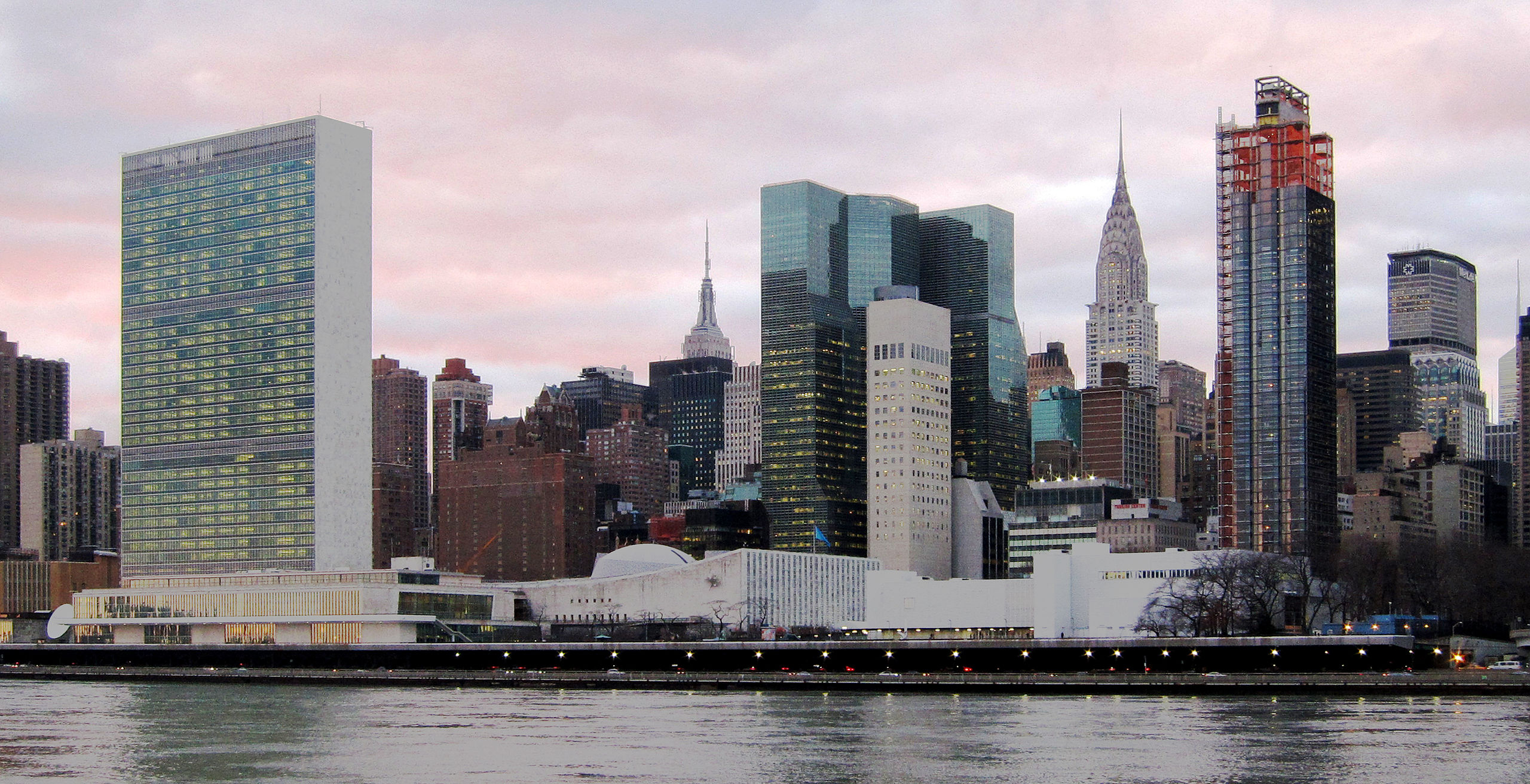Can someone please explain why Canada was one of three countries to vote Friday against a United Nations resolution condemning the glorification of Nazism?
The resolution, which censures attempts to glorify Nazi ideology and denial of German crimes during the Second World War, was passed by the General Assembly committee that deals with human rights abuses by a vote of 115 to three, with 55 nations abstaining.
If you’re having a WTF moment, rest assured I’m not making this up. This is not fake news. It is the real McCoy, and it’s been widely reported — in Russia. You can read about it on RT or ITAR-TASS. Here is the UN’s own report of the meeting.
The Canadian media, however, apparently doesn’t think this is an important story, if they are even aware of it. Leastways, there seems to have been very little Canadian coverage of this story, which, if I may be so bold, is odd given the media’s normal fascination with anything to do with Nazis.
Actually, we can begin to puzzle out why Canada voted against this resolution when we know the identities of the other two countries that voted the same way: the United States and Ukraine. Probably not coincidentally, the U.S. media also seems completely uninterested in the story.
It is also helpful to know who put the resolution on the agenda. That would be Russia.
Knowing this much, we can begin to see the general outlines of what was really going on when Canada’s representatives cast their bizarre vote at the General Assembly’s Third Committee.
As is well understood, notwithstanding much rhetorical mumbo-jumbo by many interested parties to obfuscate what is really going on, there is a civil war in Eastern Ukraine. Casualties have been high, including many Westerners in a passenger aircraft that was shot down by someone, who or why not being 100 per cent certain despite the confident and contradictory claims of both sides.
Russia is backing one side. The United States and its NATO allies, including Canada, are backing the other. Both blame the other for the situation and the casualties. So it is simply impossible for most Canadians, even those with some knowledge and a lively interest in the situation, to be confident which version of events is true.
While much of this story is murky, we can say a few things with reasonable confidence:
– The previous government of Ukraine tilted toward the Russians
– The current government of Ukraine was put in place in a coup, which we are told was led by people who wanted to tilt toward the West
– The coup and the current government are supported by some quite unsavoury groups, including neo-Nazi paramilitary organizations that use Nazi symbols on their uniforms and regalia
– Prime Minister Stephen Harper is passionate in his support for the coup government
Indeed, Harper may be so passionate in his support for the current Ukrainian government and the fact its economic program meshes with his neoliberal idea of “economic freedom” that he is willing to overlook, intentionally or not, certain glaring failings on the part of some of its key players.
This is part of a pattern with Harper, of course, that is often visible in other policy areas as well.
As for the Russians, who despite myriad flaws of their own have an obvious strategic interest in the country next door with its significant population of Russian-speaking citizens, they seem to have been fairly successful in outmaneuvering the Ukrainian regime’s Western backers since their initial failure in allowing the coup to take place last February.
When Australian Prime Minister Tony Abbott, a former boxer, blustered that he would “shirtfront” Russian President Vladimir Putin about this situation at the G20 meeting earlier this month in Brisbane, Putin, a black belt in judo, shirtfronted him.
(Shirtfronting is apparently an Australianism meaning something along the lines of “punch your lights out.” As an aside, just as you can generally bet on a boxer in a scrap with a karate black belt, it pays to bet on the judoka in a fight with a boxer — especially when he brings a flotilla of nuclear-armed warships with him.)
Harper was so furious about this in Brisbane that he apparently stomped his little foot and acted like a Parliamentary page with a “STOP Putin” sign, no doubt provoking general hilarity back at the Kremlin.
Knowing what we all know about Ukrainian neo-Nazi units’ role in Ukraine’s civil war, the Russian sponsored resolution was doubtless mischievous in intent — and apparently quite successfully so!
Canada should have followed the example of Israel, which supported the motion regardless of its source and quietly moved on. Our representatives would even have done better to imitated the moral cowards of the European Union and Australia and abstained from the vote.
But, oh no! Harper’s government, with its immature fondness for wedge politics at home and inflexible market fundamentalist ideology everywhere, didn’t have the subtlety for even that.
So, along with our Great Neighbours to the South, we blundered right into Russia’s snare and now look to all the world like perfect pair of prats — or much worse!
Alert readers will recall that the members of the UN didn’t want Canada occupying a non-permanent seat on the Security Council back in 2010, something that would have been a cinch before the Harper crowd came along. Well, I don’t think this latest development is going to help us recover from that embarrassment!
In the mean time, Canadians deserve to know: Is the government of Canada against the glorification of Nazism, or not? If we are, why did we vote against the resolution? Perhaps those might be useful questions for someone to ask in the House of Commons this afternoon.
This post also appears on David Climenhaga’s blog, Alberta Diary.



